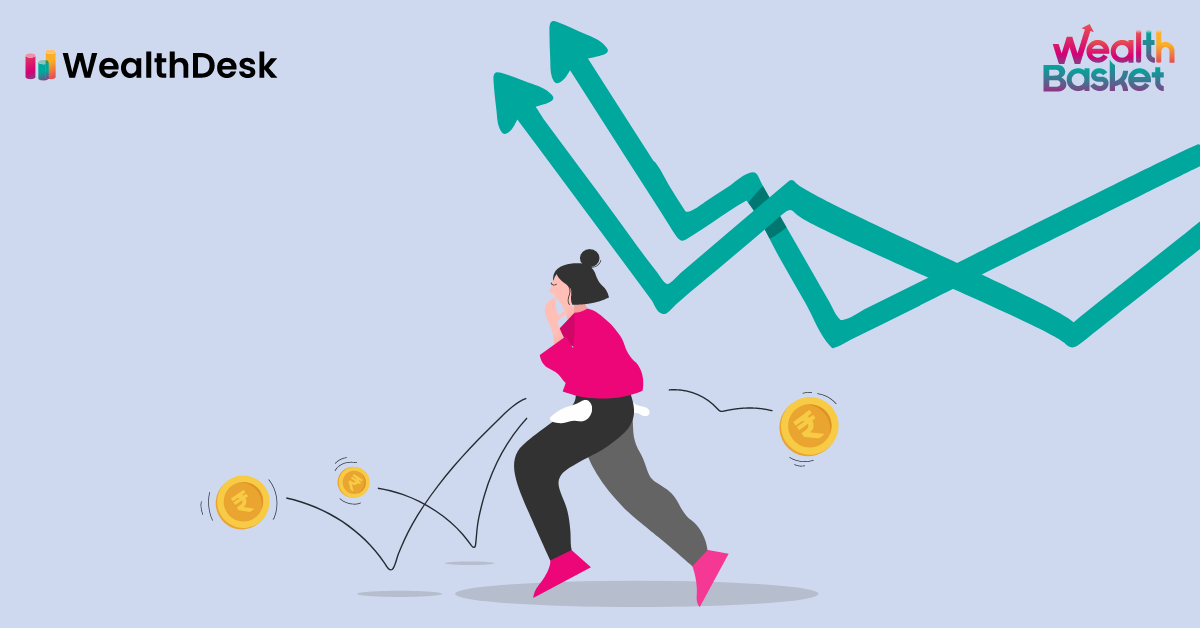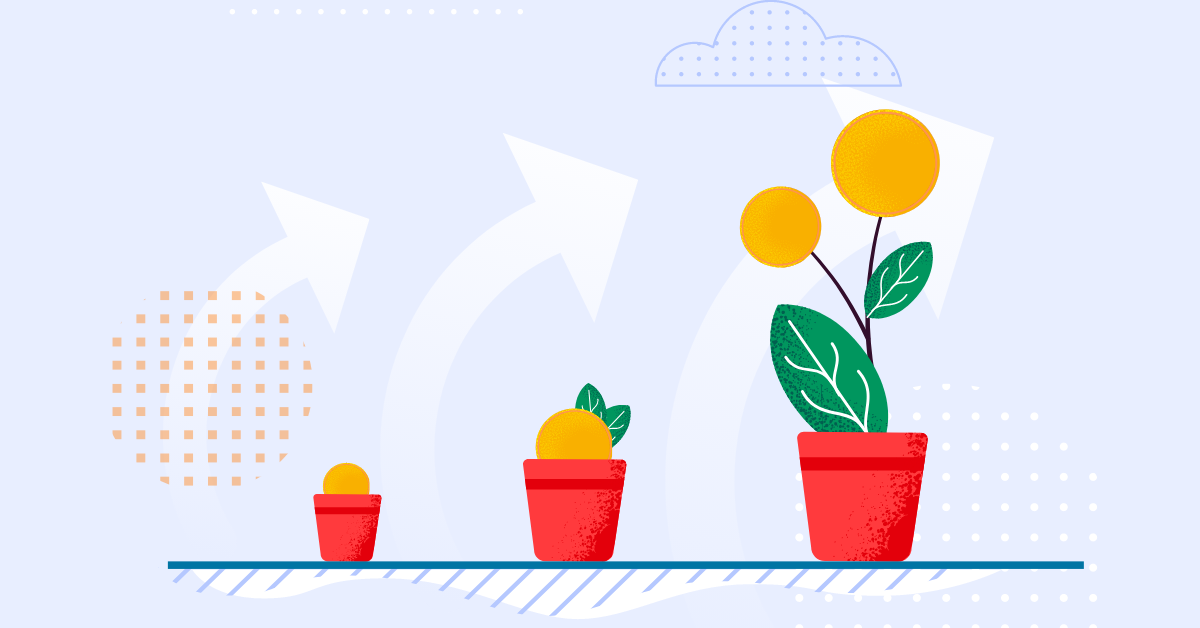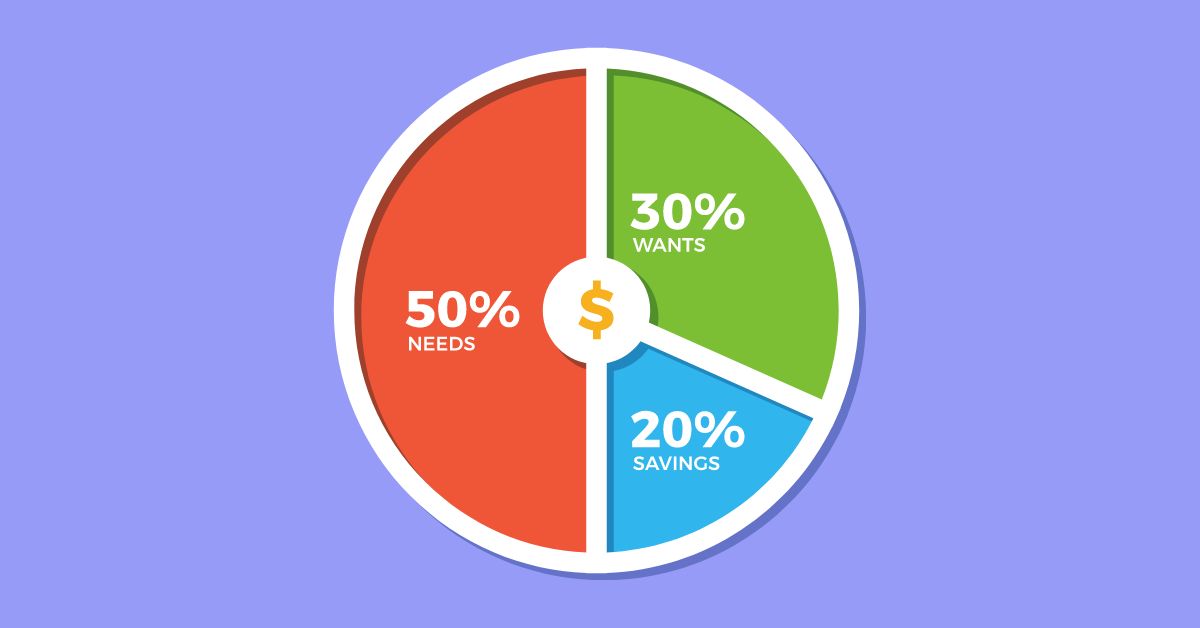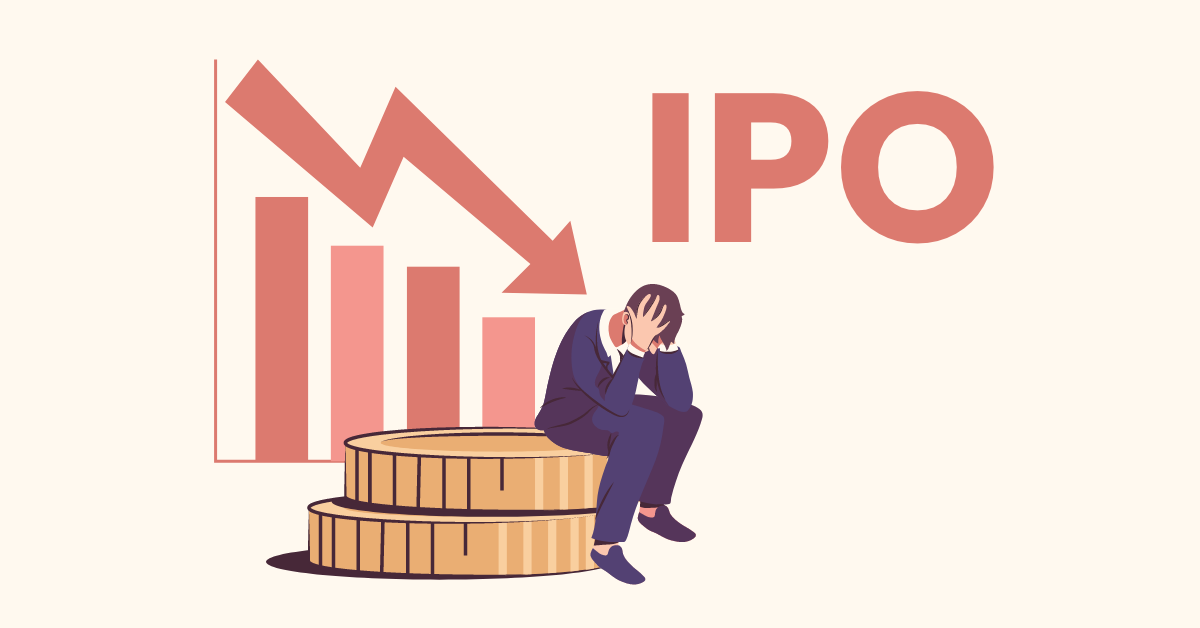‘Back in the day, we could buy so-and-so things for under ₹100, and now these things have become so expensive’, you might have heard this sentence from your parents or grandparents at least once. We can thank inflation for that. Understanding inflation and keeping up with it is important for having a healthy financial future.
This article covers what inflation is, the causes of inflation, how to measure inflation, the current scenario of inflation in India, and how to protect your income against it.
What Is Inflation?
Inflation is simply the increase in the prices of various goods and services over a specific period (usually one year). In other words, a decrease in the purchasing power of money indicates inflation. For example, suppose one liter of milk that cost you ₹55 a year ago, now costs you ₹58 for the same quantity. It means the milk purchasing power of money decreased by 5.45% in a year. It is an example of price inflation.
The inflation rate is the rate by which the prices of goods and services increase or purchasing power of money decreases.
Similarly, when your spending increases due to an increase in your income, it is known as lifestyle inflation. Lifestyle inflation is when a thing which was once a luxury has now become a necessity. For instance, suppose you get a salary hike and now increase the frequency of your fancy dinner night outs to twice a week, which was earlier once a fortnight, indicating lifestyle inflation.
What’s Behind Inflation?
-
Excessive money supply
The money supply is said to be excessive when the increase in money circulation in an economy is more than an increase in goods production, which simply means more money chasing the same goods. As a consequence, the value of money decreases, resulting in inflation.
-
Demand-pull inflation
Excessive money supply may cause demand-pull inflation. Demand-pull inflation is when demand for goods and services increases to the extent that the supply side can’t match. It may not be possible for businesses to scale production quickly in the short term.
For instance, the COVID-19 pandemic drastically disrupted business activities in 2020. When the economy started rebounding, the demand for goods increased disproportionately, but enough goods were unavailable to meet demand, resulting in inflation.
-
Cost-push inflation
When the production costs for businesses increase, they may pass the costs to end consumers by increasing the product prices. Such price rise in goods because of increased production costs is known as cost-push inflation.
For instance, Russia-Ukraine geopolitical tension contributed to the price rise of oil and petroleum products which affected many businesses, resulting in the price rise of numerous products.
Also Read: Inflation Vs Deflation
How To Measure Inflation?
There are multiple ways to measure inflation. Two of them are Consumer Price Index (CPI) and the Wholesale Price Index (WPI).
Consumer Price Index (CPI)
Consumer Price Index (CPI) is an index that indicates retail inflation. It is calculated considering a basket of 260 commodities related to food, transportation, education, electronics, medical care, etc. The basket’s price change is measured against a benchmark base year.
Here is the formula for CPI.
CPI = (Cost of the basket / Cost of the basket in the base year)*100
Wholesale Price Index (WPI)
As the name implies, the Wholesale Price Index (WPI) indicates inflation at the wholesale stage. It is calculated considering 697 commodities, which include oil, minerals, crude petroleum, cement, metals, chemicals, etc. WPI is also measured against a benchmark base year.
WPI = (Current price / Base period price)*100
Inflation in India
Inflation in India is measured using CPI and WPI. CPI data is released by National Statistical Office (NSO), Ministry of Statistics and Programme Implementation (MoSPI), and the WPI data is published by the Ministry of Commerce and Industry.
Here is the inflation rate data for the year 2022 (till June).
| Months (Calendar year 2022) | CPI | WPI |
| January | 6.01% | 12.96% |
| February | 6.07% | 13.11% |
| March | 6.95% | 14.55% |
| April | 7.79% | 15.08% |
| May | 7.04% | 15.88% |
| June | 7.01% | 15.18% |
[Source: https://www.forbes.com/advisor/in/personal-finance/inflation-rate-in-india/]
Reserve Bank of India (RBI) and government take measures to control inflated balloon whenever required.
How To Protect Your Income Against Inflation?
Controlling inflation is not in your hands, though taking care of your finances is. You may consider relooking your budget and making necessary adjustments to protect your income against inflation. In addition, you may also consider these investment hacks to protect yourself against inflation or even beat it.
Invest in the stock market
Putting your money in a savings account or fixed deposits is not bad, though inflation may eat up your returns. Therefore, you may consider investing in investment avenues that offer compounding returns, such as stocks, mutual funds, exchange-traded funds, WealthBaskets etc. Though they do not provide assured returns, they have the potential to offer you returns that beat inflation.
Diversify your portfolio geographically
You may consider investing in various financial securities across multiple countries to reduce the adverse impact of inflation on your portfolio. For instance, if you have invested in stocks in India and the U.S., and suppose India suffered high inflation while the U.S. was doing well, your investment returns may be less affected.
Also Read: How does Inflation Affect Savings and Investment Returns?
Invest in gold and real estate
You may consider investing in avenues other than traditional ones. Such alternative investments include gold, real estate, etc., which may act as a hedge against inflation. Historically, they have offered returns over the inflation rate several times.
In addition to physical gold and real estate, you may invest in financial assets tracking the performance of these assets, such as digital gold, gold exchange-traded funds (ETFs), real estate investment trusts(REITs), etc.
Buying inflation-indexed bonds (IIBs)
One way you may consider protecting your capital from the adverse impact of inflation is to purchase inflation-indexed bonds. In these bonds, the principal amount and coupon payments are adjusted according to inflation rate change.
Final Thoughts
Inflation may look scary initially, but some economists consider moderate inflation a sign of a growing economy. Inflation is not likely to go away. Therefore, factoring inflation into your financial decision instead of avoiding it may help you build sustainable wealth.
To protect your income from inflation, you may consider investing in WealthBaskets via WealthDesk. WealthBaskets are combinations of stocks and ETFs that reflect an idea, theme or strategy and are created by SEBI-registered professionals.
FAQs
Staying ahead of inflation means making financial decisions that may reduce the negative impact of inflation on your financial position. For instance, you make an investment that may give you returns that beat inflation.
You can probably protect yourself from the effects
of inflation to an extent by factoring inflation
into your financial decisions.
–
You may consider investing in fundamentally sound
stocks which offer possibility to
inflation-beating returns.
Alternatively, if you want assistance from SEBI
registered professionals, you can try
WealthBaskets.
– You may invest in
inflation-adjusted asset classes such as
inflation-linked bonds.
– You may
invest in financial securities of other countries
and thereby diversify your portfolio geographically.
There are multiple causes of price inflation, such as excessive money circulation in a country, significant fluctuations in the exchange rate, increased demand relative to supply, increased cost of production, etc.
There is no sure-shot answer to whether inflation is good or bad. At first, it may not seem good for commoners. However, some economists believe that moderate inflation may signify a growing economy, while too much inflation may prove harmful.
– Borrowers may benefit from inflation because
they owe the same amount on their debt, even if
their income has increased due to inflation.
–
Investors, who are invested in those companies that
can profit from inflation, may benefit from
inflation.


















